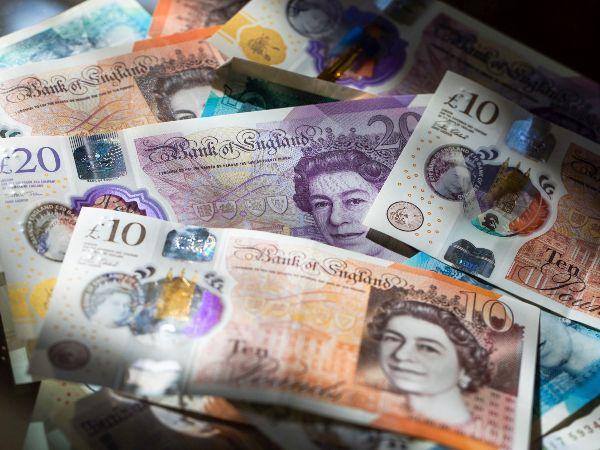As Pound Sterling weakens, Andrew Bailey faces an impossible dilemma
With Pound Sterling weakening against the US Dollar, Bank of England governor Andrew Bailey must risk either an inflationary wage-price spiral or severe recession.

Source: Bloomberg
Those who remember 1979 may feel a creeping sense of déjà vu trickling down their spines.
The Iranian Revolution had sparked an oil crisis that had doubled the price of crude oil. The Winter of Discontent saw widespread strikes as worker pay was rapidly outstripped by inflation.
UK inflation (GBP/USD) had hit a crisis-level 27% in 1975, and despite a bailout from the International Monetary Fund, remained over 20% for much of the 1980s.
The government had set a 5% pay increase limit while inflation ran into double figures. And Russian soldiers were dying by the thousand in Afghanistan, as the Soviet Union attempted, and failed, to suppress the Afghani Mujahideen equipped with Western weaponry.
And in an emergency special session of the United Nations General Assembly in early January 1980, 104 of the 152 member states had voted to protest the invasion.
GBP/USD: Back to the 70s?
Fast-forward to today. Abandonment of Russian oil has Brent Crude at $107, after reaching a high of $139. Bank of England governor Andrew Bailey has called for ‘wage restraint.’ Most NHS workers are due a 3% pay rise, with UK inflation potentially hitting 10% later this year.
Russia is again invading a foreign nation to install a puppet government, sacrificing young soldiers to the meat grinder that is NATO weapons.
And on 2 March, in another emergency special session of the United Nations General Assembly, 141 of 193 member states voted to condemn Russia’s invasion of Ukraine.
Of course, history is a mirror; it doesn’t repeat itself. There is more than one hugely significant difference between the financial crises inherited by Margaret Thatcher, and the one facing Andrew Bailey today.

Source: Bloomberg
Pound Sterling: interest rate dilemma
Throughout the 1970s the UK’s base rate remained over 10%, soaring to 17% in November 1979, after Thatcher gained power earlier in the year.
The then Prime Minister was convinced that high interest rates were necessary to bring inflation under control. The strategy eventually worked but saw unemployment rise to 3 million amidst a severe recession and political polarisation.
After the central bank’s meeting today, the Monetary Policy Committee (MPC) voted 8-1 to increase the base rate for a third successive time to 0.75%. The Consumer Prices Index inflation rate is 5.5%, with the Bank’s official target at 2%.
The US Federal Reserve has also increased rates by a quarter-point for the first time since 2018. With inflation running at 7.9%, and the country far less dependent on energy imports than the UK, six more quarter-point increases are planned for 2022.
But the cost-benefit calculation is different for the UK. The need to control inflationary pressure with interest rate rises must be balanced with easing the escalating cost-of-living crisis. Higher energy bills, housing costs, food prices, and taxes are causing the biggest squeeze on incomes since before Thatcher entered No 10.
The UK could return to 1970s-style ‘stagflation,’ marked by combined persistent high inflation and high unemployment, causing weak demand. Across the pond, former treasury secretary Larry Summers is predicting both will remain above 5% for years to come.
But the problem is more acute in the UK, which is more susceptible to the rising global prices of food and energy. Andrew Bailey will have to choose between keeping interest rates low, risking an inflation-inspired wage-price spiral, or raising them further and chancing a severe recession and housing crash.
The Bank previously predicted an inflationary peak of 7.25% in April, but now believes the peak could be ‘several percentage points’ higher later in the year, especially if the Ofgem price cap increases ‘substantially’ in October.
And it noted recent developments ‘are likely to accentuate both the peak in inflation and the adverse impact on activity by intensifying the squeeze on household incomes.’ Moreover, it warned ‘global inflationary pressures will strengthen considerably further over coming months, while growth in economies that are net energy importers, including the UK, is likely to slow.’
The MPC argues ‘the economy has recently been subject to a succession of very large shocks. Russia’s invasion of Ukraine is another such shock.’
But interest rates were running around 5% for years before the 2008 financial crisis. In hindsight, persisting with emergency sub-1% rates for 14 years instead of raising rates before the next crisis hit may not have been the most well-thought-out policy.
Because there’s always a chance that two crises can hit in a row.
Trade 100+ FX pairs with the UK’s No. 1 retail forex provider.* Enjoy fast execution, low spreads – plus we’ll never fill your order at a worse price. Learn more about our forex trading platform or create an account to start trading today.
Charles Archer | Financial Writer, London
18 March 2022






0 Comments
Recommended Comments
There are no comments to display.
Create an account or sign in to comment
You need to be a member in order to leave a comment
Create an account
Sign up for a new account in our community. It's easy!
Register a new accountSign in
Already have an account? Sign in here.
Sign In Now